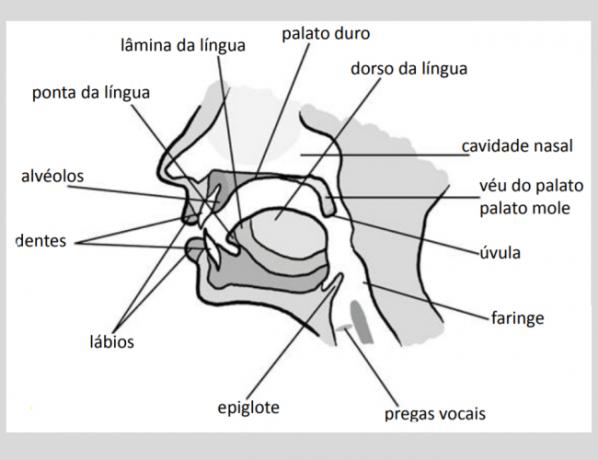Phonetics is the branch of linguistics that deals with speech sounds and their production, combination, description and representation by written symbols.
Phonetics is known as the study of the sounds of human speech using the mouth, throat, nasal cavities, and lungs.
Phonetics Types
Phonetics is divided into two types according to the production (articulation) and transmission (acoustic) of speech.
The first type of phonetics, the articulatory phonetics, examines the speech organs and processes by which human beings produce sounds. The focus is on who is speaking.
The second type of phonetics, the acoustic phonetics, focuses on the sound produced when a person speaks; the aim of acoustic phonetics is to understand the acoustic properties of speech and how this speech is perceived by the other's ears.
What is articulatory phonetics?
The first type of phonetics, articulatory phonetics, examines the sounds of human language at the source of their production. Look at how a person forms their words.
Some specific parts of the human body, known as "speech organs," are used to articulate words. These bodies include:
- voice box;
- the lungs;
- the oral cavity;
- the nasal cavity;
- the pharyngeal cavity;
- the tongue and teeth;
- the glottis;
- the lips;
- the inner surfaces of the mouth.
The airflow needed to produce sound comes from the lungs and is passed through the mouth and/or nose, with the glottis, tongue and teeth being used to alter the airflow and create different sounds.
The set of organs responsible for producing these sounds is also known as vocal tract.
 Human speech system.
Human speech system.
What is acoustic phonetics?
Whereas articulatory phonetics focuses on the speech organs used to produce the sounds of human language, acoustic phonetics focuses on the sound properties of human speech.
Acoustic phonetics also analyzes the audio perception of speech, examining how different sounds are perceived by listeners.
In the study of acoustic phonetics, a phonetic analyzes the frequency that a sound produces, the amplitude spectrum of the sound, and the duration of the sound. These factors are used to describe the sound acoustically.
The differences between phonetics and phonology
As previously stated, phonetics studies the sounds of speech, that is, the sounds produced by the vocal tract, known as headphones.
Phonology, on the other hand, studies the sounds of the language, that is, the sounds that have grammatical value, known as phonemes.
To be studied by phonology, sound must have some linguistic value. In this case, some sounds - such as headphones -, produced by the vocal tract, do not have this grammatical value. Therefore, they are studied exclusively by phonetics.
Example:
The clicking of the tongue or the noise we make when eating are sounds produced by the vocal tract, however Do not have grammatical or linguistic value. Therefore, it is studied exclusively by phonetics.
Already the sound of |bo| in the word ball it has grammatical value. Therefore, it is studied by phonology.
Despite this apparent difference between the two studies, there is a relationship in which both are able to analyze the same case within the grammar, since phonetics observes and analyzes sounds with and without value grammatical.
See also the meaning of:
- Phoneme;
- Linguistics;
- alphabet types.
